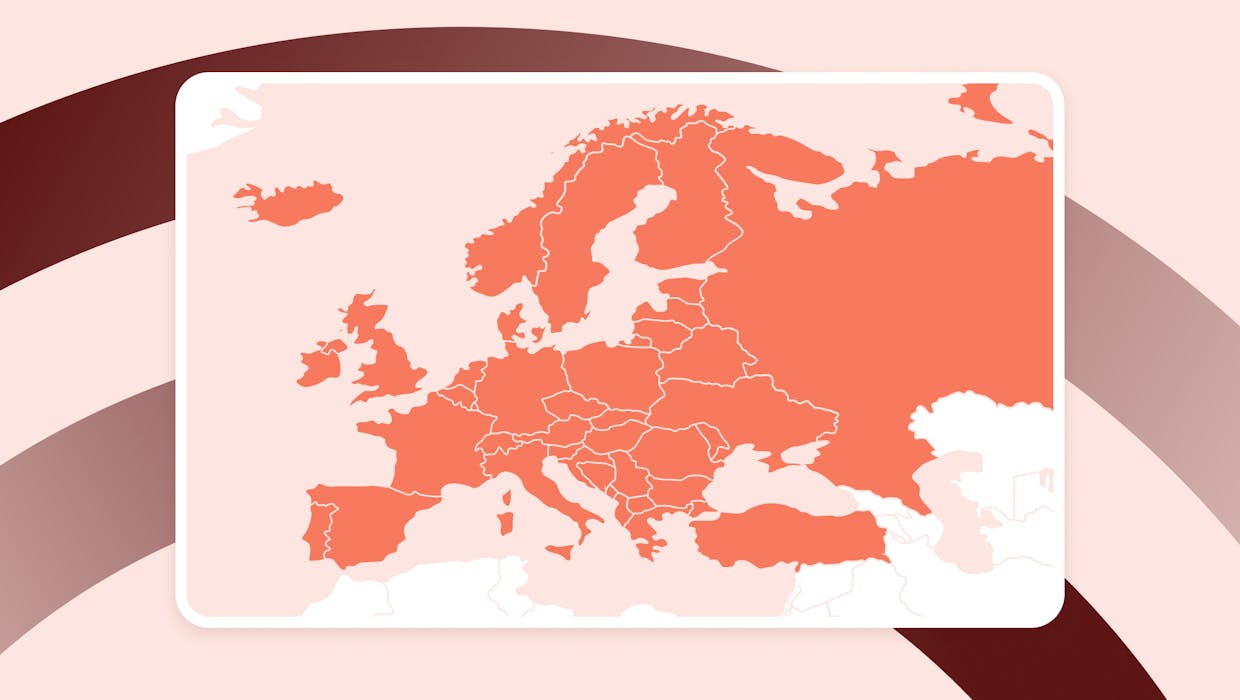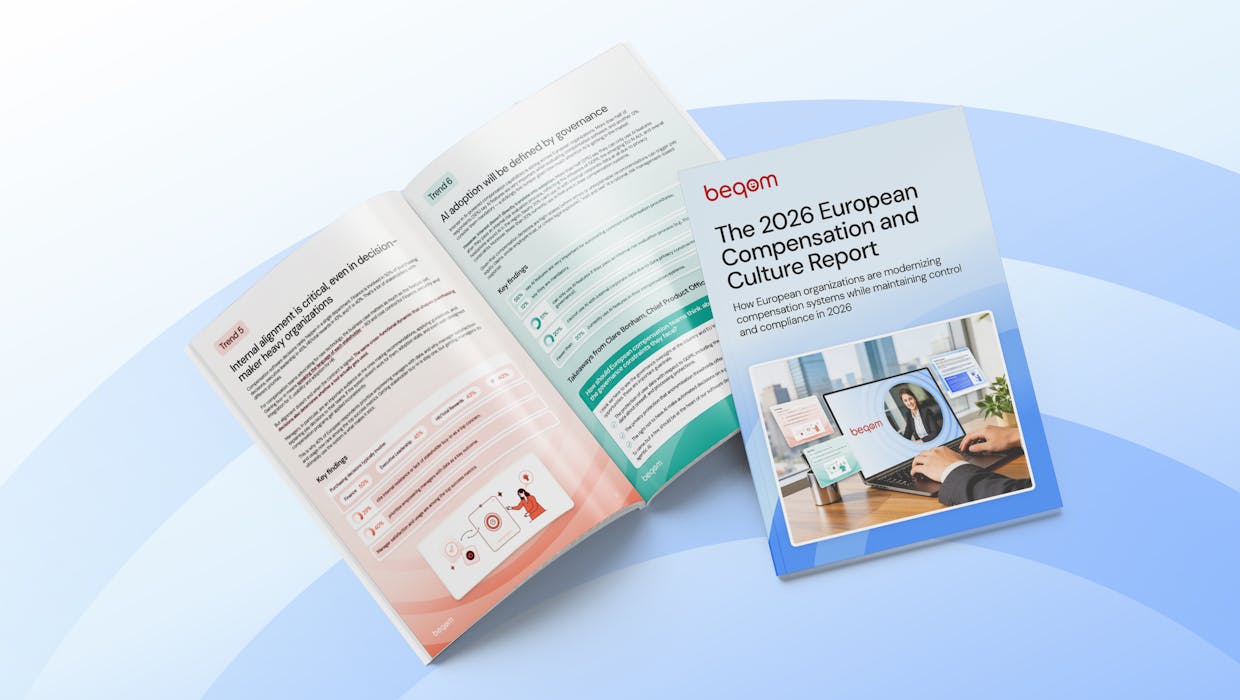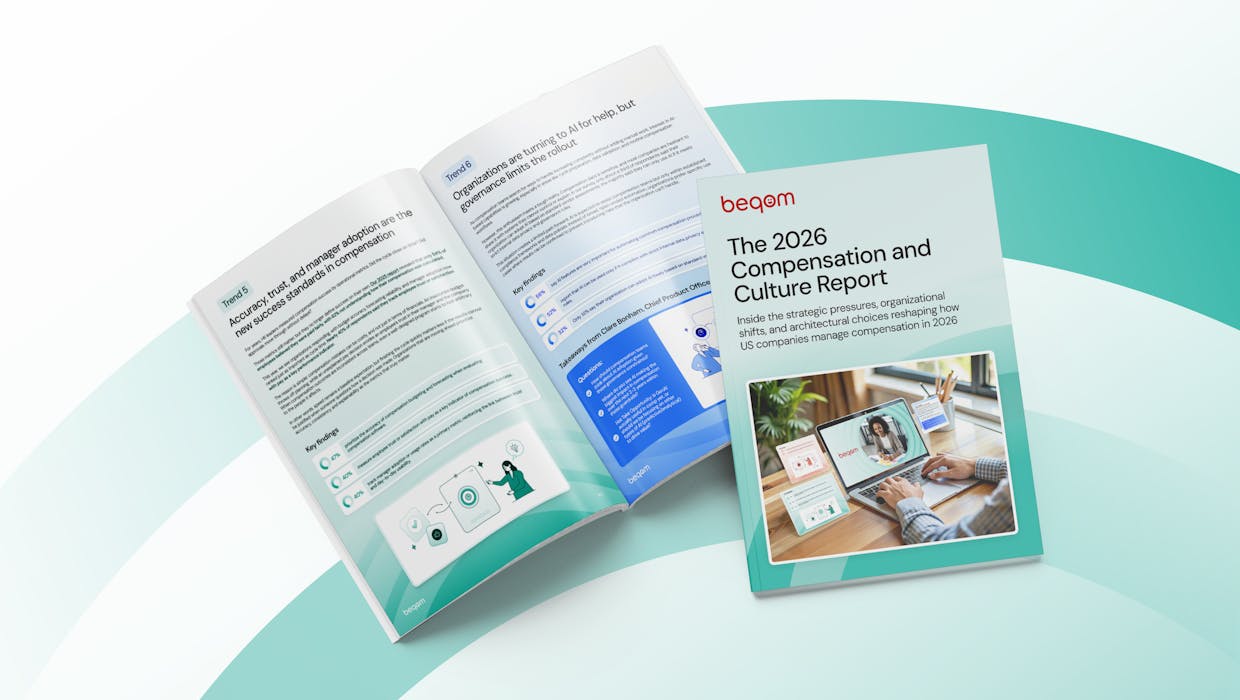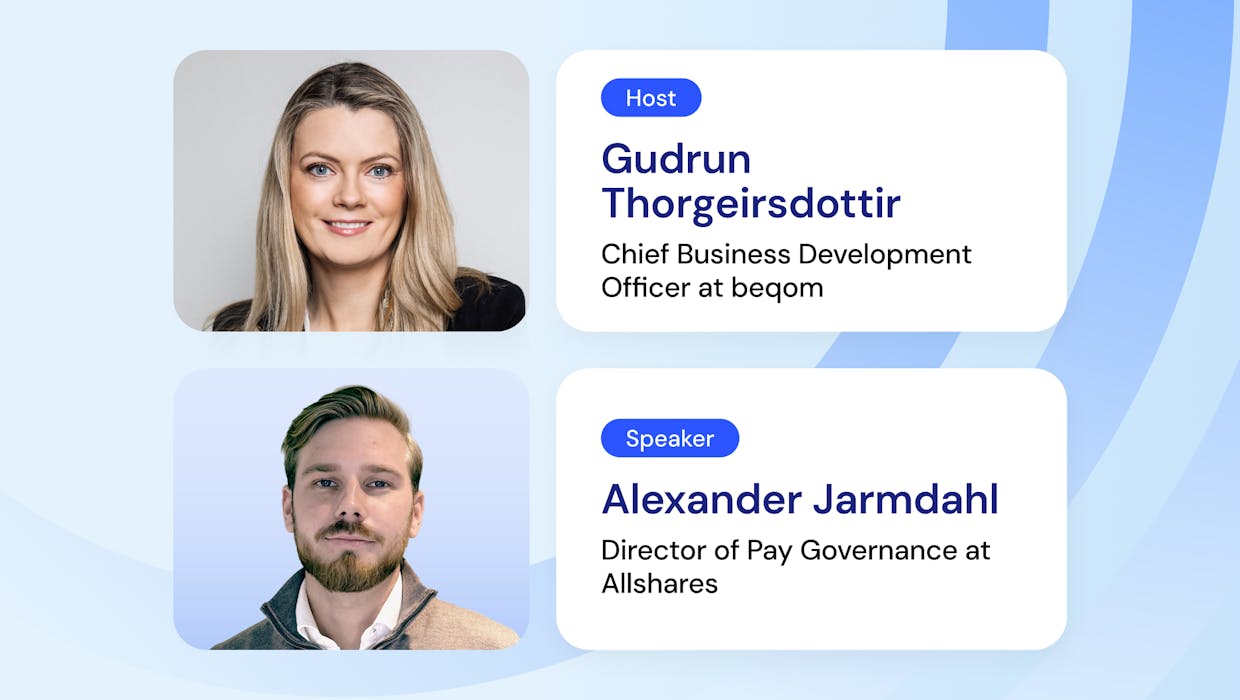Engage, Thrive, Reward: Developing a Successful Bonus Plan

Learn more about the following beqom products
While there are many ways to show appreciation for your employees, a thoughtfully crafted bonus program stands out as one of the most effective. A bonus is a monetary or non-monetary compensation on top of the normal fixed pay of employees. Undeniably, a well-designed bonus plan is paramount to attracting, retaining, and motivating top talent. Research shows that employees enrolled in a well-designed bonus plan are 8 times more engaged when they receive bonuses or other regular rewards.
In this article, we'll explore the ins and outs of bonus plans and their role in fostering a culture of performance excellence. We'll cover different types of bonus structures and guide you in structuring an effective rewards program. You'll gain the know-how to create a bonus plan that enhances employee engagement and drives business success.
What is an employee bonus plan?
Employee bonus plans are structured incentive programs that reward specific achievements or exceptional performance. These rewards can be discretionary or objective-based, tied to predefined goals or metrics. Typically, bonuses are distributed on a regular cycle, with target amounts based on fixed sums or a percentage of base salary. The primary goals of bonus plans are to motivate employees, align their efforts with organizational objectives, and cultivate a culture of high performance and engagement within the workforce.
Why design an employee bonus plan?
Designing and implementing an employee bonus plan can yield a multitude of benefits for organizations, ranging from enhanced employee satisfaction and retention to improved overall business performance. Let's look into each of these benefits:
Enhanced employee satisfaction and retention
By providing tangible rewards for exceptional performance, bonus plans communicate to employees that their hard work is valued and appreciated. This recognition not only boosts morale but cultivates a sense of loyalty and commitment among employees. Studies have shown that organizations with effective bonus programs experience higher levels of employee satisfaction, leading to reduced turnover rates.
Improved employee motivation and performance
One of the primary objectives of employee bonus plans is to incentivize and motivate employees to perform at their best. By aligning bonus criteria with organizational goals and individual performance objectives, bonus plans inspire employees to strive for excellence. Organizations with well-designed bonus plans often witness a notable increase in employee engagement, productivity, and overall performance.
Enhanced overall business performance
The process of distributing rewards, streamlined by compensation management software, improves productivity, efficiency, and profitability. When employees are motivated, engaged, and committed to achieving organizational goals, it naturally translates into improved overall performance. Research indicates that companies with effective bonus programs experience a considerable boost in productivity levels.
Improved company culture and brand reputation
Bonus plans contribute to a positive work environment where staff feels appreciated and motivated to succeed. Research shows that employees who feel recognized are 3.8 times more likely to feel connected to their organization's culture. Companies known for their commitment to rewarding employee contributions tend to attract and retain top talent, bolstering their employer brand.
Types of employee bonuses
Employee bonuses come in various forms, each serving a distinct purpose in incentivizing and rewarding employees for their contributions. Here's a brief overview of common types of employee bonuses that enable organizations to redefine rewards:
Performance bonuses
Performance bonuses are awarded based on individual or team achievements, motivating employees to meet or exceed performance goals.
Profit sharing bonus
Profit-sharing bonuses distribute a portion of the company's profits among employees, aligning their interests with the company's financial success. They boost employee motivation by nurturing a sense of ownership.
Commissions
Commissions are incentive payments tied to sales performance, providing employees with a percentage of the revenue generated from their sales efforts.
Signing bonuses
Signing bonuses are one-time payments offered to new hires as an incentive to join the company, typically to attract top talent.
Retention bonuses
Retention bonuses are awarded to employees to encourage them to stay with the company for a specified period, particularly valuable for retaining key employees.
Referral bonuses
Referral bonuses reward employees for referring qualified candidates who are subsequently hired by the company, promoting employee-driven recruitment efforts.
Attendance bonus
Attendance bonuses incentivize employees to maintain good attendance records by rewarding them for meeting attendance targets or achieving perfect attendance.
Non-monetary bonus
Non-monetary bonuses include perks such as extra time off, flexible work arrangements, disability or life insurance policy coverage, or other non-financial incentives that recognize and reward employee contributions.
Annual bonus
Annual bonuses are typically given at the end of the fiscal year and are based on overall performance, company profitability, or individual achievements throughout the year.
Spot bonuses
Spot bonus plans are immediate, spontaneous rewards given to employees for exceptional performance or going above and beyond their regular duties.
Discretionary bonus
Discretionary bonuses are given at the employer's discretion, often as a token of appreciation for outstanding contributions or as a morale booster during challenging times. Examples include executive bonus plans distributed to top-level employees only.
What is a good bonus structure?
Designing an effective employee bonus plan requires that organizations model and execute new rewards strategies. Here are the attributes of a good employee bonus structure and key factors to consider when creating an incentive program.
- Reasonable KPIs: Well-chosen Key Performance Indicators (KPIs) are the foundation of your employee bonus structure. They serve as the metrics against which performance and rewards are measured. If not properly assigned and well-thought-out, the incentive program might become a burden instead of a motivator, leading to confusion and dissatisfaction among employees.
- Budget allocation: Each company has individual financial constraints that need to be accounted for when creating an employee bonus scheme. A great deal of thought should be given to ensuring the business has the financial stability to reward its employees in a sustainable fashion.
- Good understanding of your workforce: Take into account the demographics, preferences, and motivations of your employees. Tailoring the bonus structure to align with their needs and aspirations enhances its effectiveness. The best bonus programs are the ones made with its employees' consideration and input.
- Effective communication: No matter what type of rewards system gets implemented, best practices dictate that it needs to be communicated in the most clear manner possible. Each employee must understand the purpose, criteria, and potential rewards.
- Fairness and transparency: A transparent bonus formula or methodology clearly outlines how bonuses will be calculated. Employees should understand the criteria and feel that the process is fair and equitable.
- Flexibility and adaptability: Bonus structure flexibility accommodates aligning business needs and individual circumstances. A dynamic rewards plan can better respond to evolving market conditions and employee performance. Your organization may require having multiple bonus plans to drive engagement and motivation across different teams or individuals. While they may add complexity, multiple plans drive results.
- Global consideration: If your organization operates globally, factor in regional differences in compensation practices, regulations, and cultural norms when designing the bonus plan. Harmonizing global compensation practices ensures consistency and fairness across locations.
Ultimately, the effectiveness of your organization’s bonus structure is measured by whether it succeeds in benefiting both the business and its employees.
How to create and implement an effective employee bonus plan
Crafting and implementing an effective employee bonus plan requires a strategic and systematic approach. Here's a step-by-step guide to help organizations define and structure successful bonus programs:
Understand employee needs, pain points, and motivators
Recognize that different employee populations have diverse needs and motivators based on factors such as lifestyle, family status, and generational preferences. Conduct surveys, interviews, and focus groups to gather insights into what drives and motivates your workforce. Tailor bonus plans to address these specific needs and preferences, ensuring relevance and effectiveness.
Set clear, achievable, and measurable goals in line with your overall business goals and KPIs
Define clear and measurable goals that align with your organization's overarching business objectives. Make use of a workforce analytics platform to set relevant, objective, and fair reward criteria based on data-driven insights. Establish achievable targets that challenge employees while still being attainable, fostering a sense of accomplishment and motivation. Whether it's sales targets, customer satisfaction scores, or project milestones, ensure metrics are quantifiable and relevant to your business goals.
Identify legal requirements and financial constraints
Ensure compliance with legal regulations and financial constraints when designing bonus plans. Conduct a thorough review of labor laws, tax regulations, and industry standards to avoid legal pitfalls. When creating a bonus plan, it’s important to comply with terminology nuances and regulations at the state level. Consider financial constraints and budgetary limitations to determine the feasibility of bonus structures and payout amounts.
Ensure transparency and open communication
Promote transparency and open communication throughout the bonus planning and implementation process. Clearly communicate bonus criteria, eligibility requirements, and payout mechanisms to employees. Encourage dialogue and feedback to address any concerns or questions that may arise. Transparent communication builds trust and confidence among employees, enhancing engagement and satisfaction.
Select and set the right technology stack to facilitate the process
Invest in the right technology stack to streamline and automate bonus management processes. A comprehensive compensation management software can make designing, administering, and tracking bonus programs plain sailing. Additionally, consider integrating sales performance management software to align sales incentive structures with sales targets and performance metrics. Understanding your HR tech stack is the key to optimizing your bonus plan management.
Track, evaluate, and adjust your bonus programs
Continuously monitor and evaluate the effectiveness of your bonus programs based on key performance indicators and analytics. Track metrics such as employee engagement, retention rates, and business performance to assess the impact of bonus plans. Identify areas for improvement and be willing to plan employee bonus structures and criteria as needed to optimize outcomes and drive continuous improvement.
Choose the best bonus plans for your employees
From defining the significance of bonus plans to outlining the key elements of a successful structure, we've journeyed through the intricacies of employee bonus plans. Recognizing their importance in driving motivation, performance, and retention, organizations must craft bonus structures that align with business objectives and employee needs.
When crafting effective bonus plans, fairness and pay equity should be a top priority. Aim at a balanced performance-to-reward ratio for both organization and employee. Offer transparent and clear bonus structures aligned with organizational goals to drive optimal performance and employee satisfaction. It's important to note that sometimes organizations may require multiple bonus plans to address diverse employee needs and motivations effectively.
If you are ready to empower your organization by designing and implementing successful bonus plans, contact us today. Let’s unlock the full potential of your workforce.







